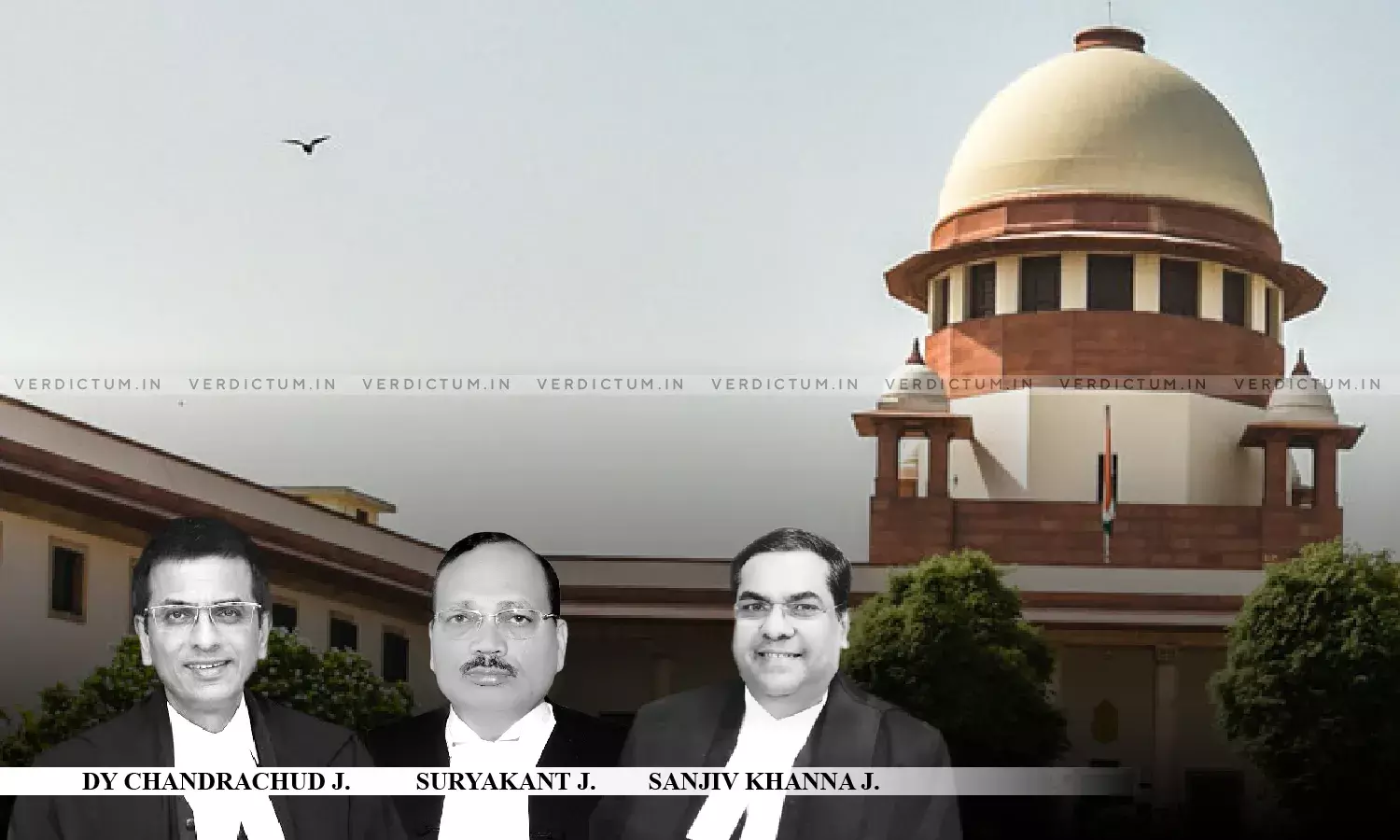Hold Preliminary Hearings At Early Stage For Clarity Over Arbitrators Fee – SC Issues Directives For Governing Fees Of Arbitrators

The Supreme Court in an important judgment has held that the Arbitrators cannot unilaterally decide their fee as it violates the cardinal principle of party autonomy in Arbitration.
In addition to this, the Bench headed by Justice DY Chandrachud has also issued certain directives governing fees of Arbitrators in ad hoc arbitrations.
The three-judge Bench of Justice DY Chandrachud, Justice Surya Kant and Justice Sanjiv Khanna held that at an early stage of the dispute resolution process, preliminary hearings must be conducted to decide upon the issue of fees of the arbitrators so that conflicts and litigations are reduced on this aspect.
Further, the Court has also observed that such hearings must be conducted when the fees are specified in the arbitration agreement.
The Court held that it is also possible that the arbitral proceedings may continue for much longer time than was expected, in such cases, during the preliminary hearings, the parties and the arbitrator(s) should stipulate that after a certain number of sittings, the fee would stand revised at a specified rate.
The Bench further held that the directives proposed by Senior Advocate Huzefa Ahmadi as amicus curiae with suitable modifications can be put to use in structuring how these preliminary hearings are to be conducted.
The directives are –
1) Upon the constitution of the arbitral tribunal, the parties and the arbitral tribunal shall hold preliminary hearings with a maximum cap of four hearings amongst themselves to finalise the terms of reference of the arbitral tribunal. The arbitral tribunal must set out the components of its fee in the Terms of Reference which would serve as a tripartite agreement between the parties and the arbitral tribunal.
2) In cases where the arbitrator(s) are appointed by parties in the manner set out in the arbitration agreement, the fees payable to the arbitrators would be in accordance with the arbitration agreement. However, if the arbitral tribunal considers that the fee stipulated in the arbitration agreement is unacceptable, the fee proposed by the arbitral tribunal must be indicated with clarity in the course of the preliminary hearings in accordance with these directives.
3) Once the Terms of Reference have been finalised and issued, it would not be open for the arbitral tribunal to vary either the fee fixed or the heads under which the fee may be charged.
4) The parties and the arbitral tribunal may make a carve out in the Terms of Reference during the preliminary hearings that the fee fixed therein may be revised upon completion of a specific number of sittings. The quantum of revision and the stage at which such revision would take place must be clearly specified. The parties and the arbitral tribunal may hold another meeting at the stage specified for revision to ascertain the additional number of sittings that may be required for the final adjudication of the dispute which number may then be incorporated in the Terms of Reference as an additional term.
5) In cases where the arbitrator(s) are appointed by the Court, the order of the Court should expressly stipulate the fee that arbitral tribunal would be entitled to charge. However, where the Court leaves this determination to the arbitral tribunal in its appointment order, the arbitral tribunal and the parties should agree upon the Terms of Reference as specified in the manner set out in draft practice direction (1) above.
6) There can be no unilateral deviation from the Terms of Reference. The Terms of Reference being a tripartite agreement between the parties and the arbitral tribunal, any amendments, revisions, additions or modifications may only be made to them with the consent of the parties
7) All High Courts shall frame the rules governing arbitrators' fees for the purposes of Section 11(14) of the Arbitration and Conciliation Act, 1996.
The Court also directed the Union of India to revise the Fourth Schedule periodically, as it was last revised in 2016. The Court held that the Schedule must be revised once in a period of three years as it cannot remain static and deserves to be revised periodically.
The Court also noted that some litigants would object to even a just and fair arbitration fee, thus, in this context, held –
"Some litigants would object to even a just and fair arbitration fee, we would like to effectuate the object and purpose behind enacting the model fee schedule. When one or both parties, or the parties and the arbitral tribunal are unable to reach a consensus, it is open to the arbitral tribunal to charge the fee as stipulated in the Fourth Schedule, which we would observe is the model fee schedule and can be treated as binding on all. Consequently, when an arbitral tribunal fixes the fee in terms of the Fourth Schedule, the parties should not be permitted to object the fee fixation. It is the default fee, which can be changed by mutual consensus and not otherwise."
Cause Title - Oil and Natural Gas Corporation Ltd. v. Afcons Gunanusa JV
Click here to read/download the Judgment

